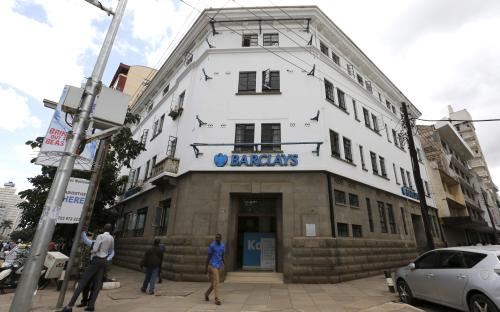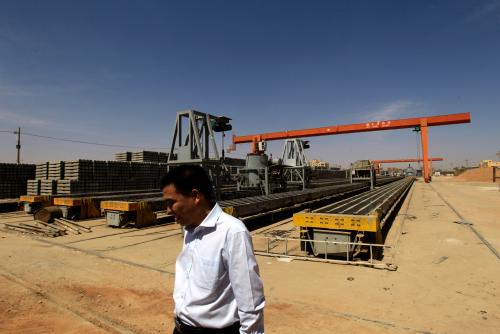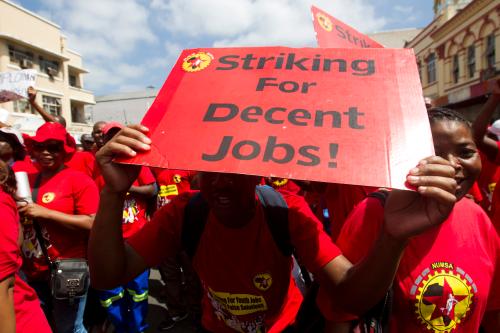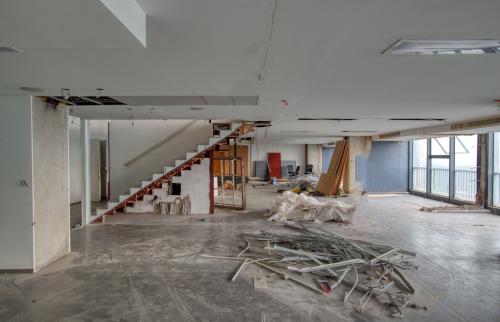Kenya’s express railway opens
On Thursday, May 31, Kenya launched its first high-speed railway, which connects the capital of Nairobi to the major port city of Mombasa. The Madaraka Express, which stretches 290 miles, was built by the China Road and Bridge Corporation, and the price tag of $3.2 billion was financed almost completely by the China Eximbank. The China Communications Construction Company will also operate the line for the next five years before turning it over to Kenya. The new standard gauge railway cuts transport time between the two cities from 12 hours by train or 9 hours by bus to just 4.5 hours. Passenger tickets will cost 900 Kenyan shillings ($8.71), which is less than a current bus price, and first class will cost about $30. The line is predicted to cut the cost of moving a container between the two cities from $960 to $480.
The Madaraka Express, which launched 18 months early, is just the start of a national, and then regional, project to connect six more Kenyan cities and then extend to Uganda, the Democratic Republic of Congo, Rwanda and Burundi, South Sudan, and Ethiopia. The project is also a part of China’s larger “One Belt, One Road” initiative to expand China’s influence across Asia, Europe, and Africa through infrastructure development and increased trade.
The line has not been without controversy. Critics worry over the high price of the rail, threats to wildlife (ten elephants died during the construction of the railway and the Madaraka goes through two wildlife habitats), and vandalism. In fact, President Uhuru Kenyatta has threatened future vandals, saying, “I will pass a law for them to be hanged.”
Barclays moves forward with Africa market exit
On Thursday, Barclays PLC announced that it completed the sale of share in its African business, reducing the shares it owns to 15 percent, down from the 62.3 percent of shares it owned when the sale was first announced in March 2016. In May 2016, the bank sold 12.2 percent of its shares to fund managers in South Africa and abroad. This week, the bank originally planned to sell 22 percent of its shares in Barclays Africa, reducing its holding to 28 percent. However, amid high investor demand, the bank sold more shares than anticipated, offloading 33.7 percent of shares and raising $2.85 billion. Moreover, 10 percent of Barclays Africa shares were allocated to a South African black empowerment scheme, working toward the inclusion of black stakeholders.
Last year, Barclays Chief Executive Officer Jes Staley announced that the group is restructuring in a way to focus its operations around the United States and the United Kingdom. The new strategy involved ending the bank’s century-long presence in Africa. The sale of shares has been delayed due to political issues in South Africa, notably marked by the firing of Finance Minister Pravin Gordhan in late March. Barclays Africa Group is listed on the Johannesburg Stock Exchange, and the sale of shares required approval from the South African authorities. Minister Gordhan had given a provisional approval to a separation agreement, which involved Barclays Bank paying its African subsidiary $987 million to cover the costs of separation.
Zuma survives bid to oust him despite low approval ratings while South Africa’s credit rating continues to struggle
South Africa’s ruling African National Congress (ANC) held a three-day meeting ending on Sunday, May 28, during which its national executive committee was expected to discuss the possibility of removing Jacob Zuma as president. Ultimately, the ANC announced on Monday that party members supported Zuma or felt that the party should remain united; therefore, the president avoided another vote of no confidence. Still, Zuma’s public approval rating is at an all-time low, Bloomberg reports, as a survey released Thursday found that 54 percent of ANC supporters say the president should voluntarily resign, and just 27 percent would like him to remain in power. Compounding this popularity slump, this week investigative journalists from AmaBhungane, a non-profit corruption watchdog group, leaked documents related to allegations that Zuma has mishandled government contracts, subjecting him to new scrutiny.
Meanwhile, Fitch ratings reaffirmed South Africa’s sub-investment grade (junk) status with a stable outlook on Thursday. South Africa’s sovereign credit rating was downgraded to the highest non-investment grade by Fitch and S&P Global Ratings in early April following President Zuma’s reshuffling of the cabinet and firing of Finance Minister Gordhan. Fitch argues, “South Africa’s ratings are weighed down by low trend GDP growth, sizeable contingent liabilities and deteriorating governance,” although “…they are supported by deep local capital markets, a favorable government debt structure and a track record of fairly prudent fiscal and monetary policy.”
In other economic news, according to a new report from Statistics South Africa, unemployment increased from 26.5 percent to 27.7 percent in the first quarter of 2017, highlighting the country’s challenges in accelerating employment growth as new entrants rapidly join the labor market.
The Brookings Institution is committed to quality, independence, and impact.
We are supported by a diverse array of funders. In line with our values and policies, each Brookings publication represents the sole views of its author(s).








Commentary
Africa in the news: Kenya inaugurates its first high-speed railway, Barclays sells Africa shares, and Zuma survives no confidence vote
June 2, 2017